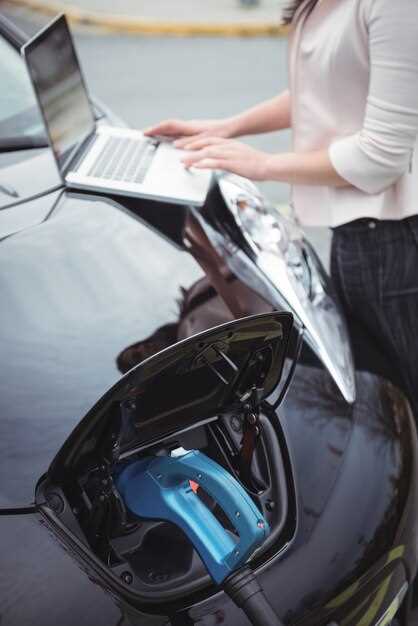Are Hybrid Cars More Expensive to Insure?

As environmental concerns continue to rise, the popularity of hybrid vehicles has surged. Many drivers are considering the switch to hybrid cars due to their fuel efficiency and lower emissions. However, one critical aspect often overlooked is the cost of insurance for these vehicles. Understanding whether hybrid cars are more costly to insure is essential for making informed financial decisions.
In this article, we will explore the factors influencing insurance rates for hybrid cars compared to traditional gasoline vehicles. Insurance premiums can vary widely based on a variety of elements, such as the vehicle’s value, safety features, and repair costs. Hybrid vehicles, often equipped with advanced technology and complex systems, may present unique challenges for insurers, which could result in higher premiums.
While some may assume that the eco-friendly nature of hybrids would lead to lower insurance costs, the reality is often more nuanced. Insurers consider overall risk, vehicle replacement costs, and repair expenses when determining premiums. By examining these factors, we can gain a clearer understanding of how hybrid cars compare to their conventional counterparts in terms of insurance expenses.
Understanding Hybrid Car Insurance Rates

Hybrid cars often come with unique insurance considerations compared to traditional gasoline vehicles. One reason for potentially higher insurance rates is the cost of repairs. Hybrid vehicles typically have specialized components, such as batteries and electric motors, which can be more expensive to replace or repair than standard engine parts. This can lead to higher premiums for drivers who own hybrids.
Another factor impacting insurance rates is the vehicle’s overall value. Many hybrid cars are priced higher than their conventional counterparts due to advanced technology and features. Insurers consider the car’s market value when determining premiums, so a more expensive hybrid may incur higher insurance costs.
Safety ratings and theft rates are additional considerations that influence insurance rates for hybrid vehicles. Many hybrids come equipped with advanced safety features that can potentially lower insurance costs. However, if a hybrid model is frequently targeted by thieves, this could raise premiums.
Below is a comparison table that outlines several factors affecting hybrid car insurance rates:
| Factor | Impact on Insurance Rates |
|---|---|
| Repair Costs | Higher due to specialized parts |
| Vehicle Value | Higher premiums for expensive models |
| Safety Ratings | Can lower rates due to advanced safety features |
| Theft Rates | Higher theft rates can increase premiums |
| Fuel Efficiency | Generally lower risk may lead to discounts |
Understanding these factors can help hybrid car owners make informed choices about their insurance needs. It is vital for drivers to shop around and compare quotes from different insurance providers, as premiums can vary significantly based on individual circumstances and the specific model of the hybrid vehicle.
Factors Influencing Insurance Costs for Hybrid Vehicles
Insurance costs for hybrid vehicles can vary significantly due to several key factors. Understanding these factors can help drivers make informed decisions about their insurance coverage.
One of the primary influences on insurance premiums is the cost of the hybrid vehicle itself. Generally, hybrid cars tend to be more expensive than their traditional gasoline counterparts due to advanced technology and components, such as electric motors and batteries. Insurers often calculate premiums based on the vehicle’s market value, meaning more expensive hybrids usually incur higher insurance rates.
Another factor is the cost and availability of repairs. Hybrid vehicles have specialized parts and technology, which may not be widely available or easily repairable. This can lead to higher repair costs, influencing insurance companies to increase premiums to cover potential expenses in case of accidents.
Safety features also play a crucial role in determining insurance costs. Many hybrid models come equipped with advanced safety systems, such as adaptive cruise control, lane-keeping assist, and automatic emergency braking. Cars with better safety ratings are often considered lower risk by insurers, potentially resulting in lower premiums.
The likelihood of theft can influence insurance costs as well. Some hybrid models may be more prone to theft due to their advanced technology or popularity. If shoppers find that certain hybrids are frequently stolen, insurance companies may charge higher premiums to account for the increased risk.
Driver demographics, including age, driving history, and location, also significantly affect insurance rates. Younger drivers or those with lesser driving experience often face higher premiums. Additionally, drivers residing in urban areas with higher accident rates may also see increased costs compared to those in rural settings.
Lastly, the driver’s choice of insurance coverage can impact premiums. A driver who opts for comprehensive or collision coverage on a hybrid vehicle may face higher costs than someone who selects only liability coverage. Understanding the types of coverage available can help car owners manage their insurance expenses effectively.
Comparative Analysis: Hybrid vs. Conventional Car Insurance
When comparing insurance costs between hybrid and conventional cars, several factors come into play that influence premiums. Generally, hybrid vehicles often come with higher insurance costs due to their unique technology and components. The complexity of hybrid systems, such as dual powertrains and battery systems, can lead to increased repair and replacement costs, which insurers consider when determining premiums.
In contrast, conventional vehicles typically have a more straightforward design, allowing for easier repairs. This simplicity can result in lower insurance rates since the potential for costly repairs is diminished. Additionally, the availability of parts for conventional cars is usually greater, further reducing associated insurance costs.
Another aspect to evaluate is safety ratings. Many hybrids are equipped with advanced safety features, which can lead to lower insurance premiums. Insurers often reward vehicles with high safety ratings, including hybrids, with discounts. However, this benefit can be offset by the higher repair costs associated with specialized hybrid components.
Moreover, the market value of a hybrid is often higher than that of a comparable conventional vehicle. Higher vehicle values typically correlate with higher insurance costs, as the potential payout in case of theft or damage is greater for hybrids.
Driving habits and geographic location also play significant roles in influencing insurance rates. Hybrid owners may engage in more eco-conscious driving practices that can lower accident risk, potentially resulting in discounts from insurers. Conversely, areas with higher crime rates may see inflated premiums regardless of the car type.
Overall, while hybrid vehicles may have higher insurance costs due to their complex technology and higher market values, various discounts and safety benefits can mitigate these costs. It is essential for drivers to compare quotes and consider specific factors influencing their premiums based on their vehicle type.
Impact of Hybrid Technology on Repair Costs and Premiums
The integration of hybrid technology in vehicles significantly influences both repair costs and insurance premiums. Hybrid cars typically utilize complex systems, including electric motors, battery packs, and sophisticated electronic control units, which can lead to higher repair costs compared to conventional vehicles. When a hybrid vehicle experiences mechanical issues, repairs often require specialized knowledge and tools, making labor costs more expensive.
Furthermore, components such as the high-voltage battery can be particularly costly to replace or repair. While some manufacturers offer warranties that cover battery replacement for extended periods, accidents or other issues can still lead to substantial out-of-pocket expenses for drivers. This potential for increased repair costs is a crucial factor that insurance companies consider when determining premiums.
In addition to repair costs, insurance premiums may also be impacted by the overall safety and theft rates of hybrid vehicles. Many hybrids are designed with advanced safety features, which can lower the likelihood of accidents and, subsequently, insurance claims. This can lead to more favorable premium rates for owners. However, the higher value of hybrid vehicles can result in increased premiums since insurance companies aim to mitigate the risk associated with insuring higher-priced assets.
Ultimately, while hybrid technology can lead to higher repair costs, the overall impact on insurance premiums is more complex, influenced by variables such as safety ratings, vehicle value, and regional factors. Drivers should consider these elements carefully when evaluating the cost implications of owning a hybrid vehicle.
Insurance Discounts and Benefits for Hybrid Car Owners
Hybrid car owners often enjoy a range of insurance discounts and benefits that can significantly reduce their overall costs. Many insurance providers recognize the lower risk associated with hybrids, due to their design and the advanced technology used in their construction. This recognition often translates into premium savings for drivers.
One of the most common benefits for hybrid car owners is access to specialized discounts aimed at promoting environmentally friendly vehicles. Insurers may offer a percentage off the standard premium as an incentive for consumers to choose hybrid models. This discount can vary by provider but generally ranges from 5% to 15% off the baseline rate.
Additionally, hybrid vehicles tend to have lower repair costs due to their less traditional components. This can lead to lower insurance rates, as insurance companies factor repair costs into their pricing. Hybrids are often equipped with advanced safety features, which not only enhance driver and passenger safety but also can lower the likelihood of accidents. Insurers may offer additional discounts based on these safety ratings, further benefitting hybrid owners.
Moreover, some states provide additional financial incentives for hybrid vehicles, which can include reduced registration fees or tax credits. While these are not directly insurance discounts, they contribute to the overall financial advantages of owning a hybrid. Insurance providers may also combine these incentives with their discounts for customers, resulting in more comprehensive savings packages.
Drivers of hybrid vehicles often report lower claims frequency, which can influence insurers to offer favorable rates. Many insurers are adopting a more customer-oriented approach and may reward hybrid owners with additional benefits, such as flexible coverage options or access to roadside assistance programs, making these policies even more attractive.
Ultimately, hybrid car owners should explore various insurance options and consult with different providers to maximize their potential savings, as many insurers are becoming increasingly competitive in offering discounts tailored specifically to eco-friendly vehicles.
Tips for Reducing Insurance Costs on Hybrid Cars
Insuring a hybrid car can sometimes be higher than traditional vehicles. However, there are several strategies you can employ to lower your insurance premiums.
- Shop Around for Quotes: Compare quotes from different insurance providers. Each company has its own method of calculating premiums, so you may find significant differences.
- Bundle Insurance Policies: Consider bundling your auto insurance with other policies, like homeowners or renters insurance. Many insurers offer discounts for multiple policies.
- Increase Your Deductible: Opt for a higher deductible to lower your monthly premiums. Just ensure you can afford the deductible in case of a claim.
- Take Advantage of Discounts: Look for discounts specifically for hybrid vehicles. Some insurers offer reduced premiums for eco-friendly cars.
- Maintain a Good Credit Score: Insurers often use credit scores to determine premiums. Keeping a good credit score can help you secure lower rates.
- Utilize Safety Features: Highlight advanced safety features and technology in your hybrid car when discussing insurance. Many insurers provide discounts for cars equipped with these features.
- Participate in Driver Safety Programs: Enroll in recognized driver safety courses to demonstrate your driving skills. Completing these can lead to discounts.
- Limit Mileage: If possible, limit your annual mileage. Some insurers offer lower rates for drivers who travel fewer miles, reducing the risk of accidents.
- Review Your Coverage: Regularly reassess your coverage options. Make sure you’re not paying for unnecessary extras or duplicate coverage.
- Choose the Right Vehicle: If you’re planning to buy a hybrid, consider models with lower insurance costs. Research insurance rates per model in advance.
Implementing these tips can help lower the costs associated with insuring your hybrid vehicle while still ensuring adequate coverage. Regularly reviewing your insurance options is key to maintaining affordability.

